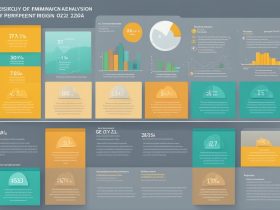Data Engineer Jobs at HM Revenue and Customs; Data engineering is a crucial aspect of any organization that deals with large volumes of data. HM Revenue and Customs (HMRC) is one such organization, responsible for calculating and collecting taxes and duties paid by more than 50 million people and more than 5 million businesses in the UK. In December 2023, HMRC is actively recruiting for Data Engineer roles, which offer exciting opportunities for professionals with a passion for data and technology.

The Data Engineer role at HMRC involves working with complex data sets, developing data models and processing pipelines, and utilizing advanced analytics techniques to generate insights that drive business decisions. The successful candidate will be responsible for designing, building, and maintaining scalable data infrastructure that supports the organization’s data-driven initiatives. The role requires strong technical expertise in data engineering, data modeling, and data management, as well as excellent communication and collaboration skills.
Key Takeaways
- HM Revenue and Customs is actively recruiting for Data Engineer roles in December 2023.
- The Data Engineer role involves working with complex data sets, developing data models and processing pipelines, and utilizing advanced analytics techniques.
- The successful candidate will require strong technical expertise in data engineering, data modeling, and data management, as well as excellent communication and collaboration skills.
Overview of HM Revenue and Customs
HM Revenue and Customs (HMRC) is a non-ministerial department of the UK Government responsible for collecting taxes, paying tax credits, and enforcing customs and excise regulations. With around 66,000 employees working across the UK, HMRC is one of the country’s largest employers.
HMRC’s primary purpose is to collect the money that pays for the UK’s public services and to help families and individuals with targeted financial support. The department is responsible for collecting taxes such as income tax, corporation tax, and value-added tax (VAT), as well as administering tax credits and child benefits.
HMRC is also responsible for enforcing customs and excise regulations, including the collection of customs duty and excise duty on alcohol, tobacco, and fuel. The department works to prevent smuggling and illegal trade, as well as protecting the UK’s borders and ensuring that goods entering the country meet the necessary standards and regulations.
In addition to its core responsibilities, HMRC also plays a key role in helping to shape tax policy and legislation in the UK. The department works closely with other government departments, as well as businesses and individuals, to ensure that the tax system is fair, efficient, and effective.
Overall, HMRC is a vital part of the UK’s economic infrastructure, ensuring that taxes are collected fairly and efficiently, and that the country’s borders are protected from illegal trade and smuggling. As such, it offers a range of challenging and rewarding career opportunities for individuals with the necessary skills and expertise.
Data Engineer Role at HMRC
HM Revenue and Customs (HMRC) is the UK government department responsible for collecting taxes and administering other regulatory regimes such as customs and excise. As of December 2023, HMRC is hiring Data Engineers to work on its modern, digital tax administration system.
Data Engineers at HMRC will be responsible for designing, building, and maintaining the data infrastructure that powers the department’s digital services. They will work with large and complex datasets, ensuring that data is accurate, reliable, and secure.
The role of a Data Engineer at HMRC requires a combination of technical and soft skills. Technical skills include proficiency in programming languages such as Python, Java, and SQL, as well as experience with data warehousing, ETL tools, and cloud computing platforms such as AWS or Azure. Soft skills such as communication, collaboration, and problem-solving are also essential, as Data Engineers will work closely with other technical and non-technical stakeholders to deliver high-quality data solutions.
HMRC is looking for candidates with a degree in computer science, software engineering, or a related field, as well as relevant work experience in data engineering or a related field. The department also values candidates with certifications in relevant technologies such as AWS Certified Solutions Architect, Microsoft Certified: Azure Data Engineer Associate, or Cloudera Certified Data Engineer.
Data Engineers at HMRC will have the opportunity to work on cutting-edge data projects at one of the largest employers in the UK. They will receive a competitive salary, flexible working arrangements, and access to a range of benefits such as health insurance, pension schemes, and training opportunities.
Overall, a Data Engineer role at HMRC is a challenging and rewarding opportunity for individuals with a strong technical background and a passion for making a positive impact on society.
Required Qualifications

To become a Data Engineer at HM Revenue and Customs in the UK, December 2023, there are certain qualifications that are required. The candidate must have a degree in computer science, software engineering, or a related field. Additionally, the candidate should have at least 3 years of experience in data engineering, data warehousing, or a related field.
The candidate must have a good understanding of data structures, algorithms, and programming languages such as Python, Java, or Scala. They should have experience in designing, implementing, and maintaining data pipelines, as well as working with large datasets.
Strong knowledge of SQL and NoSQL databases is also required. The candidate should be able to optimize queries, design schemas, and manage database performance. They should have experience in working with distributed systems, such as Hadoop, Spark, or Kafka.
In addition to technical skills, the candidate should have good communication skills and be able to work in a team environment. They should be able to collaborate with other data engineers, data scientists, and business stakeholders to deliver high-quality solutions. The candidate should be able to take ownership of projects and be able to deliver them on time and within budget.
In summary, to become a Data Engineer at HM Revenue and Customs in the UK, December 2023, the candidate must have a degree in computer science or a related field, at least 3 years of experience in data engineering, strong technical skills in programming languages, databases, and distributed systems, and good communication and teamwork skills.
Key Responsibilities
Data Engineers at HM Revenue and Customs in the UK are responsible for managing and maintaining the organization’s data infrastructure. This includes designing, implementing, and maintaining databases, data pipelines, and data warehouses. They also work closely with data analysts and data scientists to ensure that data is properly stored, processed, and analyzed.
Data Management
One of the primary responsibilities of a Data Engineer at HM Revenue and Customs is to manage the organization’s data. This includes designing and maintaining databases, creating and managing data pipelines, and ensuring that data is properly stored and secured.
Data Engineers are also responsible for ensuring that data is accurate and up-to-date, and that it is easily accessible to those who need it. This may involve working with other teams within the organization to identify data needs and ensure that data is properly integrated into the organization’s systems.
Data Analysis and Reporting
Data Engineers at HM Revenue and Customs also work closely with data analysts and data scientists to ensure that data is properly analyzed and reported. This may involve developing and maintaining data models, creating reports and dashboards, and ensuring that data is properly integrated into the organization’s analytics tools.
Data Engineers may also be responsible for developing and maintaining data visualization tools, such as charts and graphs, to help make data more accessible and understandable.
System Development and Maintenance
Another key responsibility of a Data Engineer at HM Revenue and Customs is to develop and maintain the organization’s data systems. This may involve working with other teams within the organization to identify system needs, designing and implementing new systems, and ensuring that existing systems are properly maintained and updated.
Data Engineers may also be responsible for developing and maintaining data APIs, ensuring that data is properly integrated into the organization’s applications, and ensuring that data is properly secured and backed up.
Skill Set and Competencies
To be a successful Data Engineer at HM Revenue and Customs, there are certain skills and competencies that are required. These include technical skills, as well as soft skills that are essential for working in a collaborative environment.
Technical Skills
Data Engineers at HM Revenue and Customs are responsible for designing, building, and maintaining data pipelines and data warehouses. They must have a strong understanding of data modelling, ETL processes, and database management. They should be proficient in SQL and have experience with at least one programming language, such as Python or Java.
In addition, Data Engineers should have experience with cloud-based technologies, such as AWS or Azure. They should be familiar with data storage solutions like S3, Redshift, and Snowflake. Experience with data streaming technologies like Kafka or Kinesis is also a plus.
Soft Skills
Data Engineers at HM Revenue and Customs work closely with other members of the data team, as well as stakeholders across the organization. As such, they must have excellent communication skills and be able to explain complex technical concepts to non-technical stakeholders.
Data Engineers should also be able to work well in a team environment, collaborating with other members of the data team to design and build effective data solutions. They should be proactive and self-motivated, able to take ownership of projects and see them through to completion.
Finally, Data Engineers should have a strong attention to detail, ensuring that data pipelines are reliable, scalable, and secure. They should be able to troubleshoot and resolve issues quickly and efficiently, minimizing downtime and ensuring that data is always available to stakeholders.
Application Process
If you are interested in applying for a Data Engineer job at HM Revenue and Customs, you should be aware of the application process. The recruitment process can be made up of several stages, including an application form, online tests, a telephone interview, and a face-to-face interview.
To start the application process, you need to visit the HMRC recruitment page and search for the latest Data Engineer job vacancies. You will need to create an account and fill out an online application form. The application form will ask you to provide information about your education, work experience, and skills.
After submitting your application, you may be asked to complete online tests. These tests are designed to assess your numerical, verbal, and logical reasoning skills. If you pass the online tests, you will be invited to a telephone interview. During the telephone interview, you will be asked questions about your experience and skills.
If you are successful in the telephone interview, you will be invited to a face-to-face interview. The face-to-face interview will be conducted by a panel of interviewers, who will ask you a range of questions about your experience, skills, and knowledge.
Overall, the application process for a Data Engineer job at HM Revenue and Customs is competitive, and you will need to demonstrate that you have the necessary skills and experience to be successful.
Salary and Benefits
Data Engineer jobs at HM Revenue and Customs in the UK offer competitive salaries and benefits packages. According to Indeed, the average salary for a Data Engineer at HM Revenue and Customs is £42,697 per year. This salary is based on 18,554 salaries submitted anonymously by current and former employees of HM Revenue and Customs. The salary range for a Data Engineer at HM Revenue and Customs typically falls between £25,000 and £70,000 per year.
In addition to a competitive salary, Data Engineers at HM Revenue and Customs also receive a comprehensive benefits package. The benefits package includes but is not limited to, a generous annual leave allowance, a pension plan, and health insurance. The exact benefits package offered to Data Engineers at HM Revenue and Customs may vary depending on their employment status and other factors.
Data Engineers at HM Revenue and Customs also have access to a range of training and development opportunities. This includes both on-the-job training and formal training courses. The training and development opportunities provided by HM Revenue and Customs help Data Engineers to develop their skills and progress in their careers.
Overall, Data Engineer jobs at HM Revenue and Customs in the UK offer competitive salaries, comprehensive benefits packages, and opportunities for career development.
Career Progression Opportunities
Data Engineering is a rapidly growing field, and HM Revenue and Customs offers numerous opportunities for career advancement. Employees can progress through the ranks of the Data Engineering team, from Junior Data Engineer to Senior Data Engineer to Lead Data Engineer.
In addition to moving up the ranks, Data Engineers at HM Revenue and Customs also have the opportunity to specialize in specific areas of data engineering. For example, they can choose to focus on data warehousing, data integration, or data modeling. By specializing in a particular area, Data Engineers can become experts in their field and take on more complex projects.
Data Engineers can also explore opportunities to work on cross-functional teams with other departments within HM Revenue and Customs. This provides exposure to different areas of the organization and allows for the development of a broader range of skills.
Finally, HM Revenue and Customs offers training and development opportunities to help Data Engineers continue to grow in their careers. These opportunities can include attending conferences, taking courses, or participating in mentorship programs.
Overall, Data Engineers at HM Revenue and Customs have a wide range of career progression opportunities available to them. With the right skills and dedication, they can advance their careers and make significant contributions to the organization’s data engineering efforts.
Workplace Culture
HM Revenue and Customs is known for its diverse and inclusive workplace culture. The organization values and promotes equality, diversity, and inclusion in all aspects of its operations. As a data engineer, one can expect to work in an environment that is respectful, supportive, and collaborative.
The organization has a flexible working policy that allows employees to work from home or any other location, depending on the nature of their work. This policy has been instrumental in promoting work-life balance and reducing stress among employees. Additionally, the organization provides its employees with training and development opportunities to enhance their skills and knowledge.
HM Revenue and Customs has a performance-driven culture that encourages employees to set and achieve their goals. The organization recognizes and rewards employees who perform exceptionally well, which motivates them to work harder and achieve more. The performance appraisal system is transparent and fair, and employees have the opportunity to provide feedback on their managers.
The organization also has a strong emphasis on teamwork and collaboration. Data engineers work closely with other professionals, such as data analysts, software developers, and project managers, to deliver high-quality solutions to the organization’s clients. The organization encourages employees to share their ideas and opinions, which fosters innovation and creativity.
In summary, HM Revenue and Customs has a workplace culture that promotes diversity, inclusion, and collaboration. The organization provides its employees with a flexible working policy, training and development opportunities, and a performance-driven culture that recognizes and rewards exceptional performance.
Current Job Openings

HM Revenue and Customs (HMRC) is one of the largest employers in the UK with over 66,000 employees across the country. As of December 2023, HMRC is actively hiring for multiple Data Engineer positions in various locations including Leeds, Salford, and Telford. These positions require candidates to have experience in data engineering and proficiency in programming languages such as Python, SQL, and Java.
One of the current job openings is for a Data Engineer in Leeds, England. The successful candidate will be responsible for building and maintaining data pipelines, designing and implementing data models, and working with stakeholders to understand their data needs. They will also be required to collaborate with other data engineers and data scientists to develop scalable and efficient data solutions. The job posting can be found here.
Another job opening is for a Senior Data Engineer (MetaData) in Leeds, England. The ideal candidate will have experience in metadata management, data governance, and data quality. They will be responsible for designing and implementing metadata solutions, providing technical guidance to other data engineers, and ensuring data quality and compliance. The job posting can be found here.
HMRC is also hiring for a Data Engineer position in Salford, England. The successful candidate will work on building and maintaining data pipelines, designing and implementing data models, and developing data solutions that meet business requirements. The job posting can be found here.
Overall, HM Revenue and Customs is actively looking for talented Data Engineers to join their team. Candidates with experience in data engineering and proficiency in programming languages such as Python, SQL, and Java are encouraged to apply for these job openings.
How to Prepare for an Interview
Preparing for an interview is essential to increase the chances of getting hired for a Data Engineer position at HM Revenue and Customs in the UK. Here are some tips to help candidates prepare for the interview:
1. Research the Company
Candidates should research HM Revenue and Customs to gain an understanding of the organization’s mission, values, and goals. They should also research the specific department they are applying to and the projects they are working on. This will help the candidate understand the company’s culture and demonstrate their interest in the role.
2. Review the Job Description
Candidates should carefully review the job description to understand the responsibilities and requirements of the position. They should also identify the key skills and qualifications required for the role. This will help the candidate prepare for questions related to their experience and skills.
3. Prepare Answers to Common Interview Questions
Candidates should prepare answers to common interview questions related to their experience, skills, and qualifications. They should also prepare for behavioral questions that assess their problem-solving skills and ability to work in a team. Candidates can use the Glassdoor interview questions to get an idea of the types of questions that may be asked.
4. Practice with a Mock Interview
Candidates should practice answering interview questions with a friend or family member. This will help them gain confidence and improve their communication skills. They can also record the mock interview to identify areas for improvement.
5. Dress Professionally
Candidates should dress professionally for the interview to make a good first impression. They should wear formal attire and avoid wearing anything too casual or distracting.
By following these tips, candidates can prepare for the interview and increase their chances of getting hired for a Data Engineer position at HM Revenue and Customs in the UK.
Contact Information

If you are interested in pursuing a career as a Data Engineer at HM Revenue and Customs, there are several ways to get in touch with the organization. The following are some of the most effective methods:
HM Revenue and Customs Website
The HM Revenue and Customs website provides a wealth of information about the organization, including details about current job openings and the recruitment process. Prospective candidates can browse job listings, learn about the organization’s values and culture, and get in touch with recruitment personnel to ask any questions they may have. The website is easy to navigate and provides a user-friendly experience.
LinkedIn is a popular social media platform that is widely used by professionals in a variety of industries. HM Revenue and Customs has an active presence on LinkedIn, and candidates can use the platform to connect with recruitment personnel, learn about job openings, and get a better sense of the organization’s culture and values. Prospective candidates can also use LinkedIn to network with current and former employees of HM Revenue and Customs, which can be a valuable resource for learning more about the organization and its hiring process.
Recruitment Agencies
There are several recruitment agencies that specialize in placing candidates in engineering roles, including Data Engineer positions. These agencies have established relationships with HM Revenue and Customs and can provide candidates with valuable insights into the organization’s hiring process. Recruitment agencies can also help candidates prepare for interviews and provide guidance on how to best present themselves to potential employers.
Conclusion
In conclusion, there are several ways to get in touch with HM Revenue and Customs if you are interested in pursuing a career as a Data Engineer. The organization’s website, LinkedIn, and recruitment agencies are all valuable resources that can help candidates learn more about the organization and its hiring process. By taking advantage of these resources, candidates can increase their chances of landing a job as a Data Engineer at HM Revenue and Customs.
Frequently Asked Questions
What qualifications are required to apply for a Data Engineer position at HM Revenue and Customs?
To apply for a Data Engineer position at HM Revenue and Customs, candidates are typically required to have a degree in Computer Science, Software Engineering, Data Science, or a related field. Additionally, candidates should have experience in designing, implementing, and maintaining data pipelines, as well as proficiency in programming languages such as Python, Java, or Scala.
Can you outline the primary responsibilities of a Data Engineer working with HM Revenue and Customs?
The primary responsibilities of a Data Engineer at HM Revenue and Customs include designing, implementing, and maintaining data pipelines, as well as ensuring the scalability and reliability of the data infrastructure. Data Engineers are also responsible for optimizing data storage and retrieval, as well as ensuring the security and privacy of the data.
What is the typical career progression for a Data Engineer at HMRC?
The career progression for a Data Engineer at HM Revenue and Customs typically involves moving into more senior positions such as Lead Data Engineer or Principal Data Engineer. Alternatively, Data Engineers may choose to specialize in a particular area of data engineering, such as data governance or data architecture.
Are there specific programming languages or technologies that I should be proficient in for a Data Engineer role at HMRC?
Proficiency in programming languages such as Python, Java, or Scala is typically required for a Data Engineer role at HM Revenue and Customs. Additionally, experience with big data technologies such as Hadoop, Spark, or Kafka is often preferred.
How does HMRC ensure the security and privacy of data handled by Data Engineers?
HM Revenue and Customs takes data security and privacy very seriously. Data Engineers are required to follow strict protocols and procedures to ensure the confidentiality and integrity of the data they handle. Additionally, HMRC has a range of security measures in place, such as access controls and encryption, to protect against unauthorized access and data breaches.
What are the opportunities for professional development and training for Data Engineers at HMRC?
HM Revenue and Customs is committed to providing opportunities for professional development and training for its employees, including Data Engineers. Data Engineers may have the opportunity to attend training courses or conferences, as well as participate in on-the-job training and mentoring programs. Additionally, HMRC offers a range of career development programs and opportunities for advancement.
Also Read:
- December 2023 Job Vacancies at Astertax Consulting Group Tanzania
- Jobs Vacancies at SD Worx Belgium in Dar es Salaam, Tanzania December 2023
- Sunda International Tanzania Vacancies, December 2023: Latest Job Openings Available
- Best Paying Jobs in Uganda 2024: Top 10 High-Paying Careers in Demand
- Best Paying Jobs in Kenya 2024: Top Career Opportunities for High Salaries









Leave a Reply
View Comments